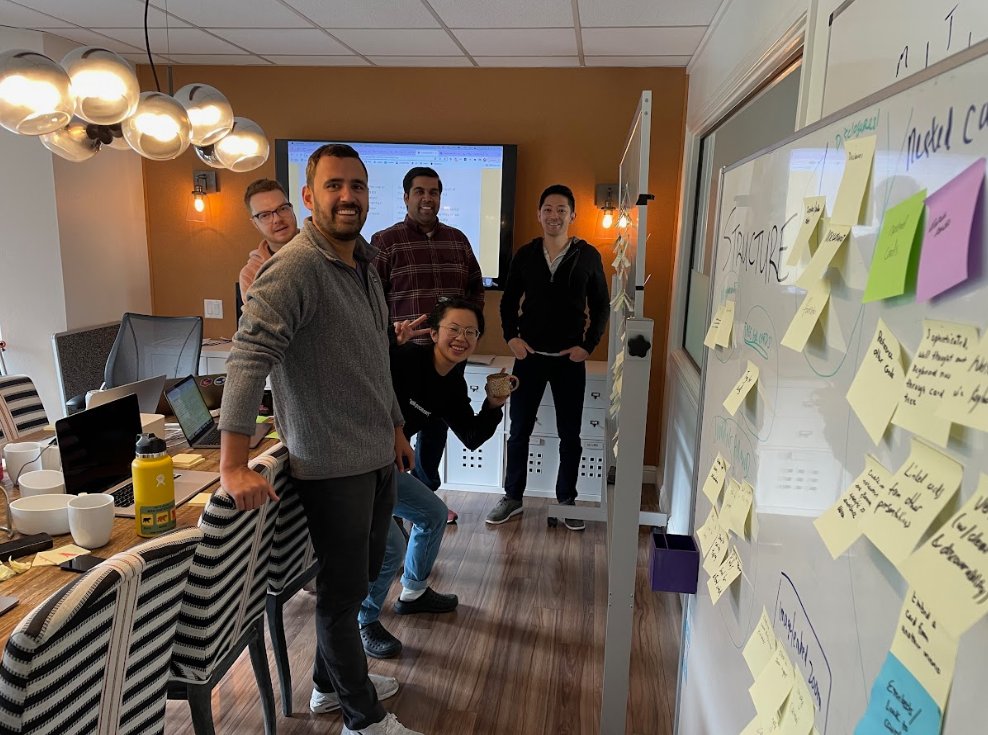"Specialize or die" made sense in 1995.
In 2025, it's a death sentence.
The future belongs to generalists, and the proof is in Systems Theory.
Once you see it, you can't unsee it:

In 2025, it's a death sentence.
The future belongs to generalists, and the proof is in Systems Theory.
Once you see it, you can't unsee it:


In "Thinking in Systems," Meadows states that a system is more than the sum of its parts.
How those parts connect is crucial.
Generalists, also called 'Jacks of all trades', ace above specialists by being the connectors.
How those parts connect is crucial.
Generalists, also called 'Jacks of all trades', ace above specialists by being the connectors.

Knowledge workers spend hours just finding information across departments.
That kills speed, how fast you sense change, process it, and adapt.
And speed may be the ONLY predictor of startup success that matters.
Not headcount. Not capital. Not network.
That kills speed, how fast you sense change, process it, and adapt.
And speed may be the ONLY predictor of startup success that matters.
Not headcount. Not capital. Not network.
Every specialist creates a bottleneck in information networks.
Information has to be translated, handed off, approved, and coordinated.
Brooks's Law shows that a 10-person team has 45 channels to manage.
A 50-person team has 1,225.
Information has to be translated, handed off, approved, and coordinated.
Brooks's Law shows that a 10-person team has 45 channels to manage.
A 50-person team has 1,225.

Delays silently kill momentum.
Every handoff, from designer to coder to marketer, is a delay.
The generalist short-circuits this.
When a person understands design, code, & user psychology, the entire feedback loop happens in their head.
Every handoff, from designer to coder to marketer, is a delay.
The generalist short-circuits this.
When a person understands design, code, & user psychology, the entire feedback loop happens in their head.

Fragile teams rely on single specialists.
But when one leaves, the work stops.
Antifragile teams are made of generalists.
But when one leaves, the work stops.
Antifragile teams are made of generalists.

Many people still think "T-shaped skills" means "decent at a few things."
Wrong.
T-shaped means DEEP in one area and COMPETENT across multiple.
You need depth for credibility and breadth for perspective. To see how things connect.
Wrong.
T-shaped means DEEP in one area and COMPETENT across multiple.
You need depth for credibility and breadth for perspective. To see how things connect.

This pattern isn't entirely new, just amplified.
-Midjourney achieved $200M+ ARR with just about 40 people.
-Cursor too, clocked in $100M ARR with a dozen or so employees.
They won because their small, agile, generalist teams could out-maneuver giant competitors.
-Midjourney achieved $200M+ ARR with just about 40 people.
-Cursor too, clocked in $100M ARR with a dozen or so employees.
They won because their small, agile, generalist teams could out-maneuver giant competitors.

In Systems thinking, the emphasis is on having a rapid "Build-Measure-Learn" cycle.
These are feedback loops. The faster you can iterate, the faster you find product-market fit.
Generalists, being multi-skilled, are feedback loop accelerators.
These are feedback loops. The faster you can iterate, the faster you find product-market fit.
Generalists, being multi-skilled, are feedback loop accelerators.
The research on polymaths backs this up.
Nobel Prize winners had 2.85x more hobbies than average scientists.
Da Vinci, Franklin, and Feynman worked across 5+ domains.
Cross-domain knowledge creates pattern recognition specialists can't see.
Nobel Prize winners had 2.85x more hobbies than average scientists.
Da Vinci, Franklin, and Feynman worked across 5+ domains.
Cross-domain knowledge creates pattern recognition specialists can't see.
So, are specialists obsolete? No.
It’s about the environment.
"Kind" problems (like chess or surgery) have clear rules and reward specialization.
"Wicked" problems (like building a startup) are unpredictable and reward integrative thinking.
It’s about the environment.
"Kind" problems (like chess or surgery) have clear rules and reward specialization.
"Wicked" problems (like building a startup) are unpredictable and reward integrative thinking.
A system's power comes from its interconnections, creating behavior that parts alone could not.
A team of specialists just does the job.
A team of generalists creates emergence: novel solutions, rapid adaptation, and resilience.
A team of specialists just does the job.
A team of generalists creates emergence: novel solutions, rapid adaptation, and resilience.
https://twitter.com/1319250540480598026/status/1983202728357892579
• • •
Missing some Tweet in this thread? You can try to
force a refresh











